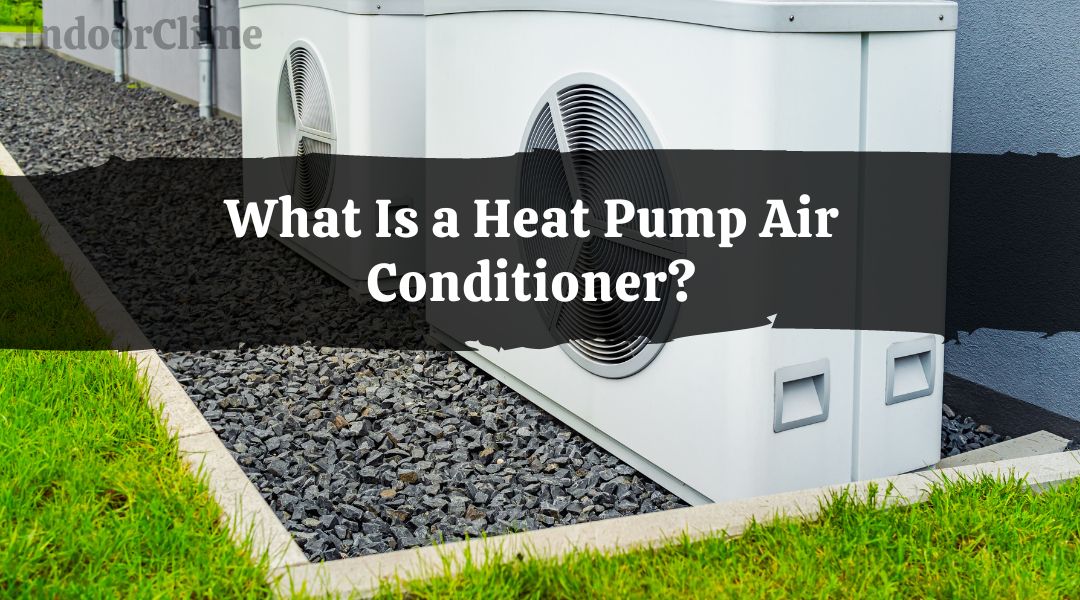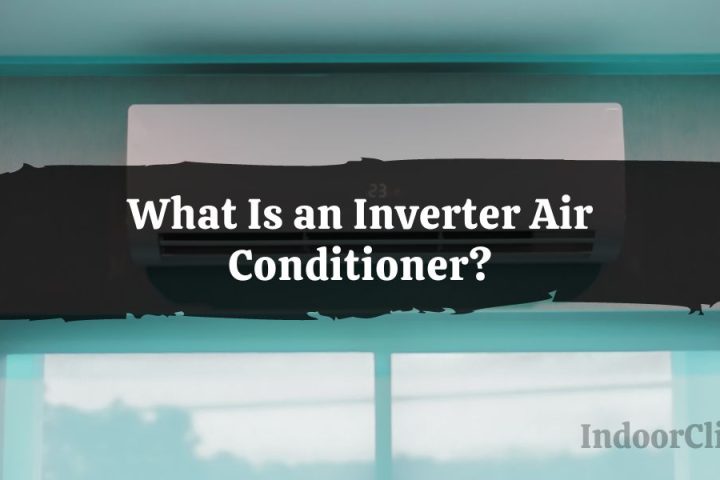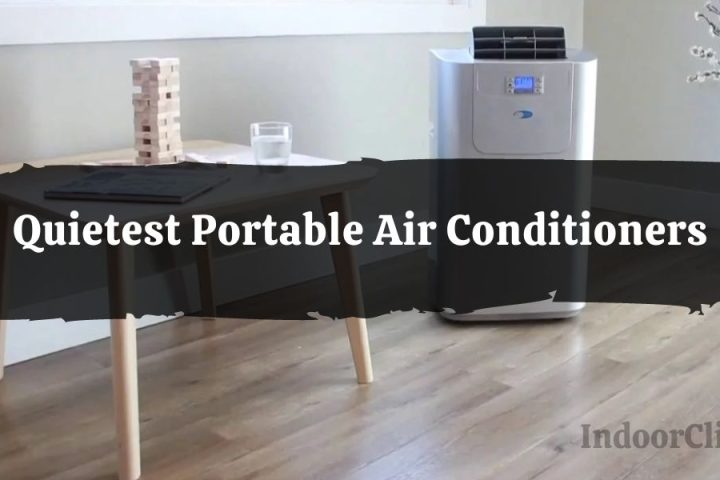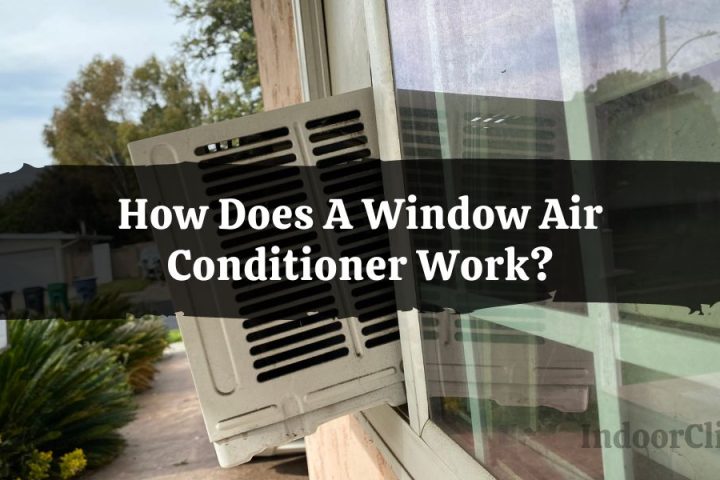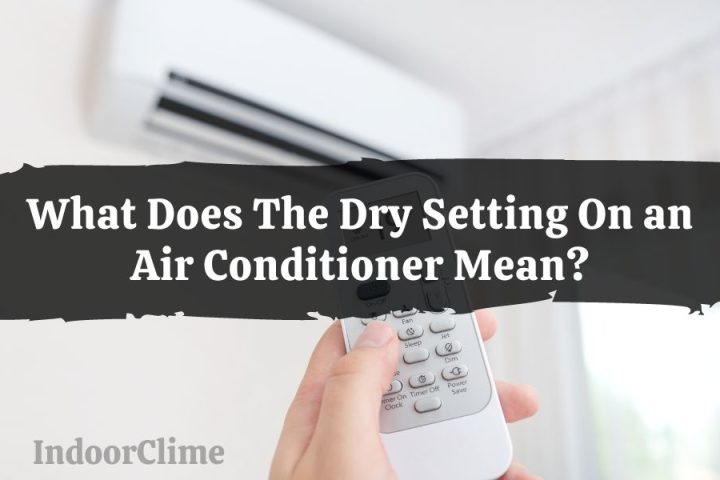It doesn’t matter to you whether you have a heat pump or an air conditioner when you’re looking for sweet relief from the summer heat – all you want is it to work.
However, knowing your options is useful when installing or replacing an HVAC system that effectively heats and chills your home and keeps your family comfortable.
Although a central air conditioner is one of the most common cooling systems and can provide adequate cooling, it is not the only option. A heat pump removes the excess heat when it’s hot inside, making it another energy-efficient option for your home.
This guide will go through the differences between these two cooling systems.
Heat pump air conditioners are a unique type of air conditioner. Like regular air conditioners, heat pumps keep your home or apartment cool when it’s hot outside by removing unwanted heat and pumping it out.
Unlike traditional AC units, they can provide cooling when it’s hot outside and heating when cold. Heat pump air conditioners take heat from the outside and pump it into your home to keep it toasty and warm.
What is a Heat Pump?
A heat pump is an outdoor HVAC unit to heat and cool a home. It could cool and heat your home, just like an air conditioner.
In the winter, a heat pump draws heat from cold outdoor air and transfers it indoors, and in the summer, it draws heat from indoor air to cool your home.
They run on electricity and share heat via refrigerant to keep you comfortable all year.
Because they can handle heating and cooling, homeowners may not need to install separate heating and cooling systems.
An electric strip can be added to the indoor fan coil for functionality in colder climates. Heat pumps generate heat without the use of fossil fuels.
Heat pumps work on the principle that moving something is generally easier than making it.
They’ve used that concept for years to cool homes by transferring heat from the inside to the outside and then reversing the process to heat them.
The Components of a Heat Pump
A typical air-source heat pump comprises an indoor air handler and an outdoor unit (a split system).
A variety of components make up the heat pump system:
- A compressor is in charge of moving the refrigerant through the system
- Air is heated or cooled by coils; both condenser and evaporator coils
- Reversing valve that changes the refrigerant flow
- Thermostatic expansion valves that control refrigerant flow
- Accumulator that changes with the seasons
- Inside and refrigerant lines connect outside components
- Heat strips are used to provide extra warmth on cold days
- Air ducts allow hot and cold air to circulate throughout the house
Remember that the compressor, condenser, expansion valve, and evaporator are the four main components of a heat pump. An essential function of the condenser in a heat pump is to heat the room.
How Does a Heat Pump Heat?

A heat pump is an appliance that extracts heat from the cold outside air and transports it into our home.
An internal compressor uses electricity to raise the temperature of the heat extracted from the outside air to accomplish this. The heat pump can also supply cooling by shifting warm indoor air to the outside.
There are two types of heat pumps on the market. The first is a geothermal heat pump (ground source heat pump, a high-efficiency renewable energy technology gaining popularity in residential and commercial buildings. Space heating, cooling, and water heating are all done with geothermal heat pumps).
The second option, an air source heat pump (also known as an air-to-water source heat pump), transfers heat from the outside air to water, which is then used to heat your rooms through radiators or underfloor heating.
It can also heat water that has been stored in a hot water cylinder for use in your hot taps, showers, and baths) is the most common. Heat is transferred from indoor to outdoor air by air-source heat pumps.
When a heat pump is turned on, refrigerant is pumped through the lines that absorb heat in your home. Then, the refrigerant circulates from the indoor air handler to the outdoor unit to release the heat.
Change the setting to heat in winter to reverse the process and bring warmth into your home.
Pros & Cons of Heat Pumps
We’ll review these benefits and drawbacks below to help you make an informed decision and a smart investment in this low-carbon heating technology.
Pros of a Heat Pump
- Operating expenses are reduced
- Reduced upkeep
- Improved Protection
- CO2 Emissions are reduced
- Cools the space
- Long-term durability
- RHI Scheme Eligibility
Cons of Heat Pump
- High initial investment
- Installing it isn’t easy
- Sustainability is in doubt
- It necessitates a substantial amount of effort
- Problems that arise in the cold
- It is not entirely carbon neutral.
- Permissions from the Planning Commission are required
Heat Pump vs. Air Conditioner: What’s The Difference?
The primary difference between the two HVAC systems is that a heat pump can heat and cool while an air conditioner cannot.
So while the cooling mode is nearly identical, the heating mode is an entirely different story.
The process of a heat pump is reversible, and it goes like this:
- Heat is extracted from the outdoor air by the condenser coils and absorbed by the refrigerant.
- The refrigerant travels to the evaporator coil through the indoor system components.
- The evaporator coils emit heat energy, mixing with the air circulating through the system.
You get two systems with a heat pump: one that takes care of both your heating and cooling needs. So, for example, if you want to warm and heat in the winter, you’ll need a heating system if you have an air conditioner.
When choosing between a multi-tasking air conditioner and a multi-tasking heat pump, the heat pump comes out on top. Simply put, air conditioners are only designed to keep you cool.
Do I Have a Heat Pump or an Air Conditioner?

On the outside, heat pumps and standard air conditioners look almost identical, making it tough to identify which system you have.
Here are four easy ways to tell if you have a heat pump or a standard air conditioner:
Method 1. Check the thermostat for an emergency heat setting. If your thermostat has an emergency heat setting, you have a heat pump instead of a standard air conditioner.
Method 2. Turn on the heat and inspect the outside unit. Turn the thermostat to Heat mode while at it, and then check to see if the outdoor unit comes on. If the outdoor unit turns on, you have a heat pump instead of a standard air conditioner.
Method 3. Examine the outdoor unit’s labels. A manufacturer and EnergyGuide label can be found on the side panels of the outdoor unit. These labels frequently include information that can aid in determining whether or not you have a heat pump.
Method 4. Look inside the outdoor unit for the reversing valve. Heat pumps have a reversing valve that is unique to them. The component allows the heat pump to switch from cooling to heating mode by reversing the refrigerant flow in the system. If you see a reversing valve inside the outdoor unit, you have a heat pump.
Should I Get a Heat Pump or an Air Conditioner and Furnace?
A furnace only heats like an air conditioner, whereas a heat pump can heat and cool. Heat pumps also work by absorbing heat from the inside or outside the house and transferring it to the opposite location.
Furnaces generate heat on their own, traditionally using gas or electricity.
However, due to the similarity in technology, heat pumps and electric furnaces are frequently paired. A heat pump will provide some heating, which the heat will supplement from the furnace.
The two can provide efficient heating for a home by working in tandem at varying levels depending on the temperature setting.
A heat pump may be the best option if you stay in a mild climate.
Heat pumps may be a good fit for your home if your winters are between 30 and 40 degrees Fahrenheit. A heat pump works well in a climate with milder winters. Furthermore, heat pumps are ideal for locations with low electric rates.
A furnace may be best if you lodge in a cold climate.
A furnace may be the best option if your winters are bitterly cold and temperatures are consistently below freezing. Laces perform better in colder climates because they do not rely on outdoor temperatures to convert to heat.
The best of both systems is combined in dual fuel.
Dual fuel is an excellent option in mild or severe winters. Dual fuel systems choose the best heating option for you, whether a heat pump or a furnace, based on your heating requirements, making them a great fit in any weather.
Deciding Between the Heat Pump and Air Conditioner

Here are some questions to think about in making that decision:
Is it necessary to have both heating and cooling or just cooling?
The first question may seem self-evident, but sometimes you already have some heat and require additional heat. Alternatively, you may consider other heating options besides the heat pump.
How is the weather where you live?
A furnace, boiler, or even electric heat will work better in freezing weather applications for the coldest winter months, such as climates in the far north.
Air-source heat pumps are ideal for areas with mild winters. They also work well if you already have heating and need a little extra for the shoulder seasons (spring and fall).
Cost
The starting cost of a heat pump is not significantly more than an air conditioning unit. However, the operating cost is higher since it runs year-round and requires more maintenance.
More significant wear and tear and more components that need attention will add to your maintenance bill.
Lifespan
As with the cost, the lifespan of your heat pump is affected by the fact that it runs for more extended periods of the year than an air conditioner.
As a result, you will have to replace it sooner, so talk to a professional to ensure you’ll benefit from the heating a heat pump gives.
Energy Efficiency and Cost to Operate

The energy efficiency of air source heat pumps and air conditioning systems is measured using the Seasonal Energy Efficiency Ratio (SEER) or Heating Seasonal Performance Factor (HSPF).
SEER measures a system’s cooling output throughout a typical summer, whereas HSPF measures a heat pump’s heating mode efficiency.
Consider it in terms of your car’s miles per gallon (MPG) rating. You can get high MPG, but your MPG will be significantly lower if you drive like you’re in the Indy 500.
SEER ratings are the maximum cooling efficiency ratings for your system. Any system’s efficiency will suffer if the temperature changes or your home is on a tropical island with southern exposure.
In the summer, a heat pump and an air conditioner may cost about the same to run, but in mild winters, heating with a heat pump may be less than heating with a furnace.
However, if the outside temperature drops, the energy savings will be reduced because a heat pump’s reserved heating system will require more energy to keep your home warm.
Life Expectancy
As previously stated, heat pumps operate annually, potentially reducing their lifespan. However, when a furnace or other heating system kicks in in the winter, the air conditioning system breaks, extending the AC’s lifespan.
At the same time, lower operating costs may offset the shorter life span of a heat pump during mild winters.
Heat pumps work well at above-freezing temperatures because the heat in the air is free, and they only require enough energy to keep the home at a comfortable temperature.
Regular annual tune-ups, which keep your system running at peak efficiency, will significantly extend the life of both.
People Also Ask
Which is better, an air conditioner or a heat pump?
Consider installing a heat pump. Air conditioners consume a lot of energy, raising your utility bills and contributing to global warming.
Unfortunately, adapting to climate change—by buying an air conditioner in a place where you’ve never needed one before, for example—often means contributing to even more climate change. It’s a never-ending cycle.
You can help yourself by purchasing a heat pump instead of an air conditioner. You won’t need to burn fossil fuels to heat your home or apartment in the winter if you use a heat pump.
And phasing out fossil fuels is the quickest way to halt climate change.
Do heat pumps cool as well as air conditioners?
Heat pumps cool your home by separating heat from the indoor air and transferring it to the outdoors. Likewise, they can warm the interior living space by extracting heat from the outside air and transferring it to the inside air.
They use the same energy as central air conditioners and gas furnaces, and they’re just as easy and safe because they don’t use combustion fuel.
In addition, these appliances must meet the same energy efficiency standards as central air conditioners and operate on the same cooling principles.
A heat pump and an air conditioner can cool if the SEER ratings are equal.
Can a heat pump heat a whole house?
Unless you have a single-story ranch-style home, a single ductless heat pump will not be enough to heat your entire house.
However, this does not recommend purchasing multiple heat pumps to cover every square inch of your home.
Heat pumps can be single-zone or multi-zone. A single zone comprises one outdoor unit and one indoor head covering a single area of your home.
A multi-zone system contains one outdoor unit with multiple indoor heads (possibly two, three, or even four) covering numerous areas of your home.
Are heat pumps louder than air conditioners?
Although heat pumps produce more noise than traditional heating and cooling systems, the most important thing to remember when it comes to sounds is to pay attention to new and unfamiliar noises.
The scroll compressor in a heat pump usually makes a loud noise when it starts up. It can sound like the entire heat pump is trembling at times. When heat pumps shut down, they usually click or tap.

